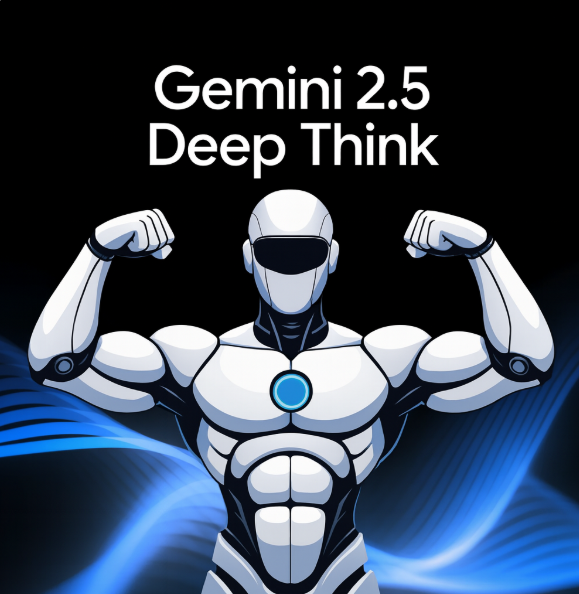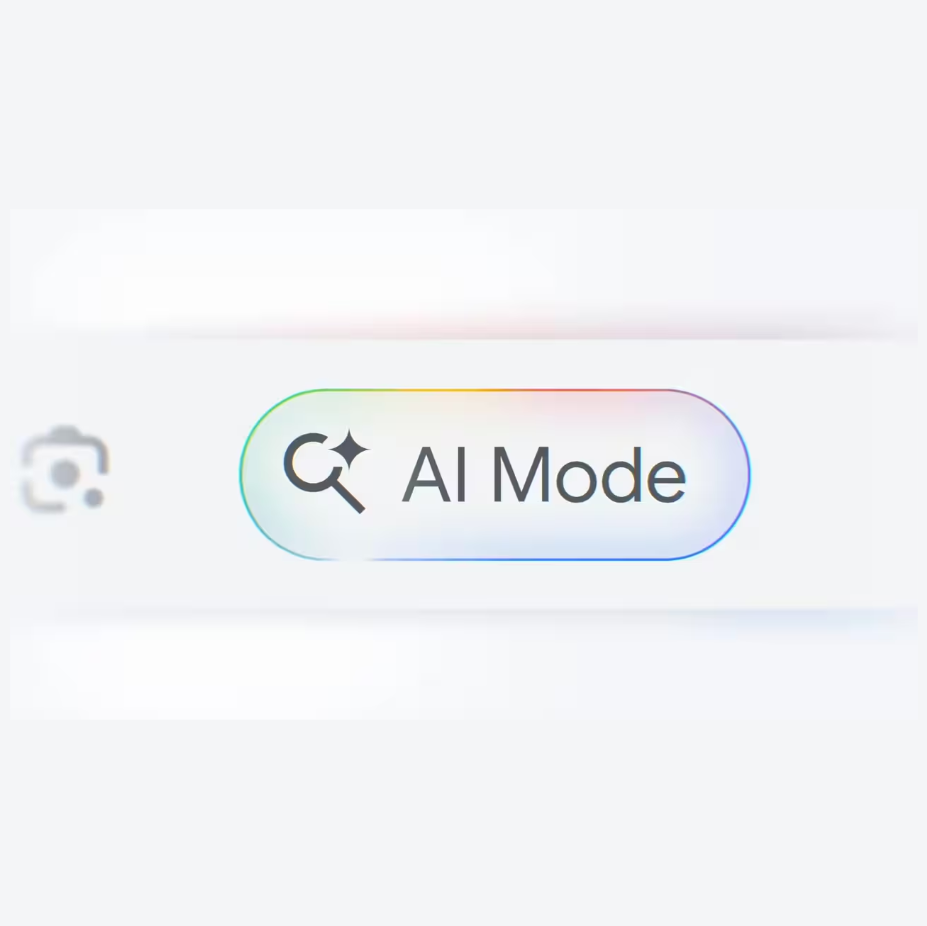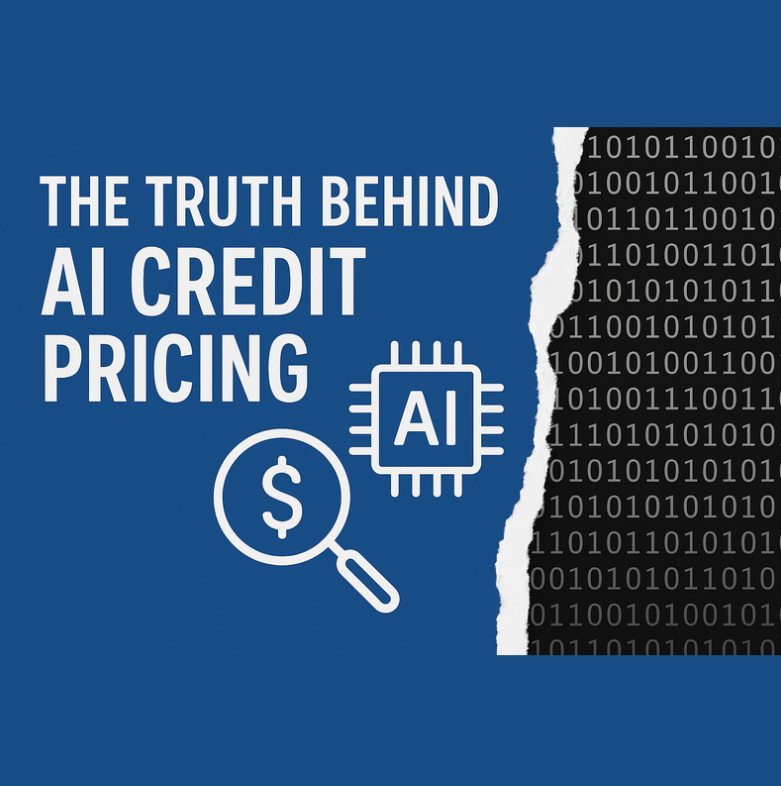
Google has released a major upgrade to its most advanced AI system.
The model is called Gemini 2.5 “Deep Think”, and it’s now available through Google AI Studio (Ultra tier).
This version introduces new reasoning capabilities powered by something Google calls “parallel hypothesis thinking” - the ability to run multiple chains of thought simultaneously, then pick the best one.
The model outperformed others in several advanced benchmarks - and it also came with a surprise:
🔔 Google says this model triggered early-warning safety alerts under its own Frontier Safety Framework, including potential misuse in chemical, biological, radiological, and nuclear (CBRN) contexts.
What Google Is Saying
Google says this upgrade is about making Gemini “think” better and act safer. With “Deep Think,” Gemini will now take extra time on harder prompts, giving more accurate answers by reasoning more carefully before responding. It’s kind of like letting the AI pause before answering something tricky.
They also added a new early warning system to help researchers and developers spot potential risks - like hallucinations or unsafe behavior - before they become bigger problems. This system works during testing, alerting teams when a model’s responses might cross a line or behave unpredictably.
In short, Google is saying: we’re building in more patience, more checks, and more ways to flag issues early.
🗣️ Here's how Josh Woodward, VP of Google DeepMind, put it in the company blog:
“With Deep Think, Gemini pauses to reflect before it responds. And with our early warning systems, we're adding new guardrails to help ensure safety before models ever reach users.”
What That Means (In Human Words)
If you're using Gemini, here’s what this upgrade actually changes for you:
✅ Smarter answers for harder tasks
When you ask Gemini something complex - like advanced coding, math, or strategy - it may take longer to respond. That’s not a bug. It’s Deep Think doing its job: thinking before answering. Let it.
⚠️ Slower doesn’t mean broken
If you’re building workflows, expect a slight delay for “tough” queries. You might need to adjust timers or expectations if you're automating things.
🧠 Be more mindful of what you ask
This update doesn’t just improve Gemini’s intelligence - it also brings it closer to risky territory. The model can now go deeper into sensitive areas, so your prompt really matters.
🔒 Behind-the-scenes safety checks
If you’re testing new features, prompts, or use cases, Gemini might flag risky behavior internally before you even notice it. That’s a good thing. But don’t ignore it - learn from it.
🎯 Plain language = more power = more responsibility
Gemini can now do more with less. Even vague or simple prompts can unlock complex reasoning. So be clear, be specific, and know that Gemini might read more into your words than you expected.
Connecting the Dots
Let’s take a step back and look at why Google felt this update to Gemini was really needed. These kinds of upgrades don’t happen in a vacuum. There’s usually a story behind the scenes - patterns in how the product is performing, complaints users are sharing, things that aren’t working the way they should. But most companies won’t say those parts out loud. We’re not most companies.
So here’s our take.
What they’re not saying
When you look at this Gemini upgrade, one thing becomes clear. It’s not just a new feature. It’s a correction.
People using Gemini noticed something - the model was rushing. You’d ask a complex question and it would spit out a fast answer that felt... off. Not wrong every time, but rushed. Like it was guessing instead of actually processing. Some called it confident and helpful. Others said it felt like shallow thinking dressed up in formal language.
Now that Google’s introducing Deep Think, it’s pretty obvious what was going on. They’re trying to slow Gemini down - give it more time to think, to reason, to weigh things before answering. They’re not saying “we had a problem,” but this feature pretty much confirms it.
And that’s not all.
The hallucination problem hasn’t gone away. Even with recent model upgrades, Gemini has been called out for getting basic facts wrong - dates, names, math, even parts of its own documentation. That’s not just a little bug. It’s a trust issue. And in Google’s case, trust is everything. So instead of framing this as “we fixed it,” they rolled it out as an enhancement: Deep Think and Early Warnings.
It’s smart messaging, but the real story is simple. Users were frustrated. Trust was shaking. And Google had to act.
🧠 What Real Users Are Saying
“It’s much more verbose… makes more mistakes and hallucinates all the time, doesn’t follow given prompts.”
- Gemini 2.5 Pro user on r/Bard
http://www.reddit.com/r/Bard/comments/1lql2vl/how_much_worse_is_gemini_25_pro_compared_to_the
“Based on my early testing in reasoning, programming & physics, it does not seem to be better… my guess is it’s close to 2.0 Flash Thinking.”
- Redditor on r/Bard
http://www.reddit.com/r/Bard/comments/1jjlyc6/gemini_25_pro_is_just_amazing
“In my opinion, the 2.5 Pro model is the best I’ve used so far… later versions actually had a significant regression.”
- Gemini user reflecting on model behavior
http://www.reddit.com/r/Bard/comments/1lg7gd7/gemini_25_pro_review
🧠 Strategic Move: One Customer in Hand Beats Two You Don’t Have
Let’s be honest. If you’re Google, and you already have 6 million businesses paying for Workspace, why chase the open market when your best move is sitting right in front of you?
You already have the clients.
You already have the infrastructure.
And you’ve already bundled Gemini right inside Docs, Gmail, and Drive.
Now the only thing left?
Get those users to actually use it.
Here’s what we found:
-
6 million businesses pay for Google Workspace (source: Statista, 2025).
-
Google reports 35 million active Gemini users per day (source: Google Cloud Blog, April 2024).
-
That means ~29 million Gemini users are not coming from Workspace.
-
BUT, that also means most of Workspace customers aren’t using Gemini yet.
Now look at the sectors where Google dominates:
🎓 Universities
🏥 Hospitals
🏛️ Government and NGOs
These are environments where data accuracy, clarity, and AI trust aren’t optional - they’re mandatory.
So if those users complain that Gemini is vague or "hallucinates" too often, Google doesn’t need to build new flashy AI gimmicks.
It needs to fix the vibe.
This upgrade - with Deep Think and Early Warning systems - feels like a direct response to that.
Make the existing customers happy.
And scale on what you already have.
🧾 Sources:
-
http://www.statista.com/statistics/1253475/google-workspace-paid-business-users/
-
http://cloud.google.com/blog/products/ai-machine-learning/google-cloud-next-2024-10-new-things-to-do-with-gemini
-
http://www.statista.com/statistics/1253457/google-workspace-market-share-industry/
Gemini (Google) vs ChatGPT (OpenAI)
Why ? because we love doing it. Comparison help us see things clearly and provide insight to why a company will make a move.
(You may check our old review from 2 months ago, comparing Gemini 2.5 and ChatGPT)
Quick Comparison – August 2025
|
Feature |
Gemini (Google) |
ChatGPT (OpenAI) |
|
Daily Active Users |
35 million (as of July 2025) |
100 million+ weekly (as of July 2025) |
|
Enterprise Customers |
6 million Google Workspace paying businesses |
Enterprise integrations (exact number not public) |
|
Usage Model |
Gemini app + Google Workspace + API |
ChatGPT web app + API + Enterprise ChatGPT |
|
Data Privacy Focus |
Stronger push on accuracy for health, academia etc. |
Enterprise privacy modes, custom model options |
|
Unique Features |
Deep Think, Workspace-native tools, Google Search grounding |
GPT Store, custom GPTs, memory, plug-ins |
Bottom Line
Availability: Rolling out now to Gemini for Workspace users
Cost: No additional cost - included in existing paid plans
Action Needed: None - updates apply automatically
Who It’s For: Enterprise, education, healthcare, and high-trust use cases
Worth Noting: Slower replies = deeper thinking
Prompt It Up: How Will This Upgrade Actually Impact Your Workflow?
We get it.
If you’re a Gemini user, your first instinct after this upgrade might be to ask:
“Will this slow things down?”
Or maybe:
“Will anything change in how we work together?”
You’re not alone - and you shouldn’t have to guess.
We made you a prompt so Gemini can break it all down for you - based on how you work.
📋 Copy this prompt and paste it into Gemini:
“We work together on tasks like writing, summarizing, analyzing data, and building slides.
Google just rolled out a Gemini update called Deep Think - which allows you to process tasks in the background and return better, slower-brewed answers.
I want to understand how this change impacts our daily work.
Please create a table with these columns:
-
Common tasks we do together
-
How long each task used to take
-
Your estimate of how long they’ll take now with the Deep Think upgrade
-
Suggestions I can apply to speed things up or work more efficiently with you now
If you need to make assumptions, that’s fine - just make them clear.”
Frozen Light Team Perspective
This is a clear move.
A neutral evolution.
A cosmic dance - right at the stage AI is in right now - between speed and accuracy.
And when you’re a business?
You address your customers’ needs.
Simple.
That’s what this move from Google is about.
They already have the enterprise base.
And when that base includes universities, hospitals, and institutions where accuracy matters most -
you slow down, clean up, and serve what they actually need.
So there you have it.
No drama. No surprises.
Just doing what makes sense.







